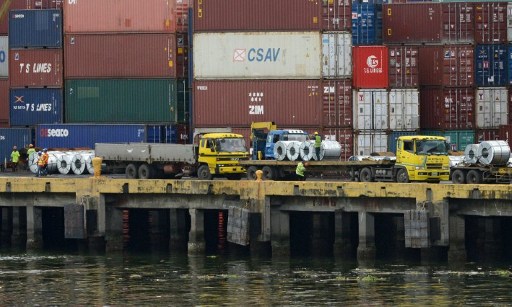CHEAPER global oil prices alongside a decline in shipments of capital goods pulled down the value of the country’s imports last November to $4.989 billion—over a tenth lower year-on-year.
While lower oil costs led to lower revenue collections, the importation of this commodity is expected to jump this year, according to the National Economic and Development Authority (Neda).
Preliminary data released by the Philippine Statistics Authority (PSA) on Tuesday showed that the value of merchandise goods imported in November dropped by 10.8 percent from the $5.593 billion registered in the same month of 2013.
Despite the slump last November—the steepest drop posted thus far in 2014—total imports in the first 11 months of 2014 managed to inch up by 2.8 percent to $58.549 billion, from the $56.965 billion reported in the same period of 2013.
There was a surplus in the balance of trade worth $272 million last November, reversing the $1.268-billion deficit seen the previous year.
In a statement, Neda attributed the slide in imports last November to “lower payments for capital goods and mineral fuels and lubricants,” which reversed gains in the importation of raw materials, as well as consumer and intermediate products.
Citing PSA data, Neda noted that the value of imported capital goods was slashed by almost three-fifths to $789.4 million last November, from $1.9 billion the previous year.
“The negative performance of capital goods imports was largely due to the decrease in imports of aircraft, ships and boats, which partly reflects the trough period of the massive refleeting program of major airlines, as well as the reduction in the import value of telecommunications equipment and electrical machinery,” Socioeconomic Planning Secretary Arsenio M. Balisacan said. “Declining global oil prices also brought down the value of inward shipments of mineral fuels during the month.”
Since late last year, global oil prices have been halved to below $50 a barrel.
While impacting negatively on the value of imports, lower oil prices is seen to bolster consumer spending, Balisacan said.
But he warned that a continuous downward spiral in global oil prices “may cause the government’s fiscal position to worsen.”
The Bureau of Customs had estimated losses worth P40 billion from the collection of duties and taxes on oil products this year.



